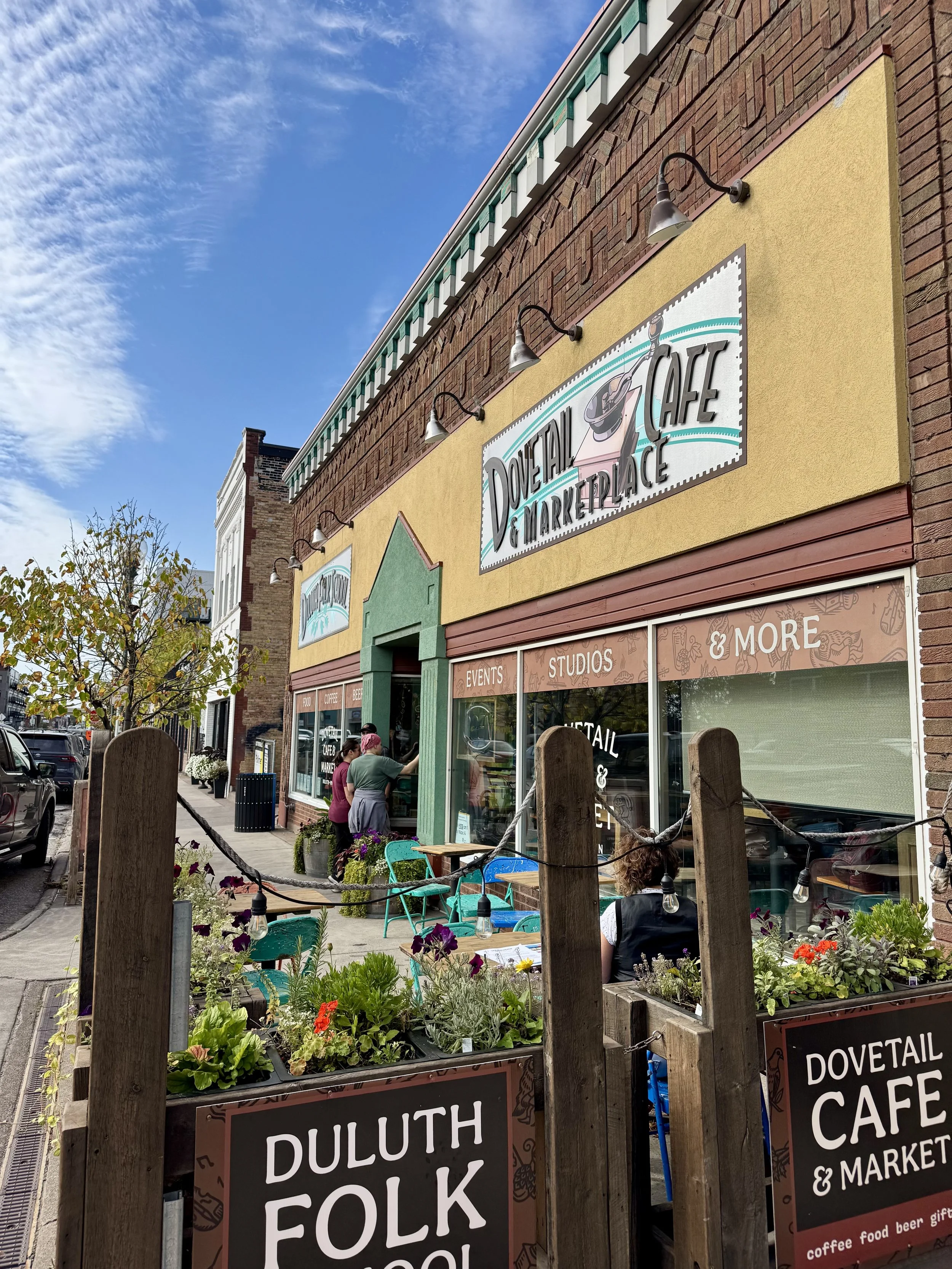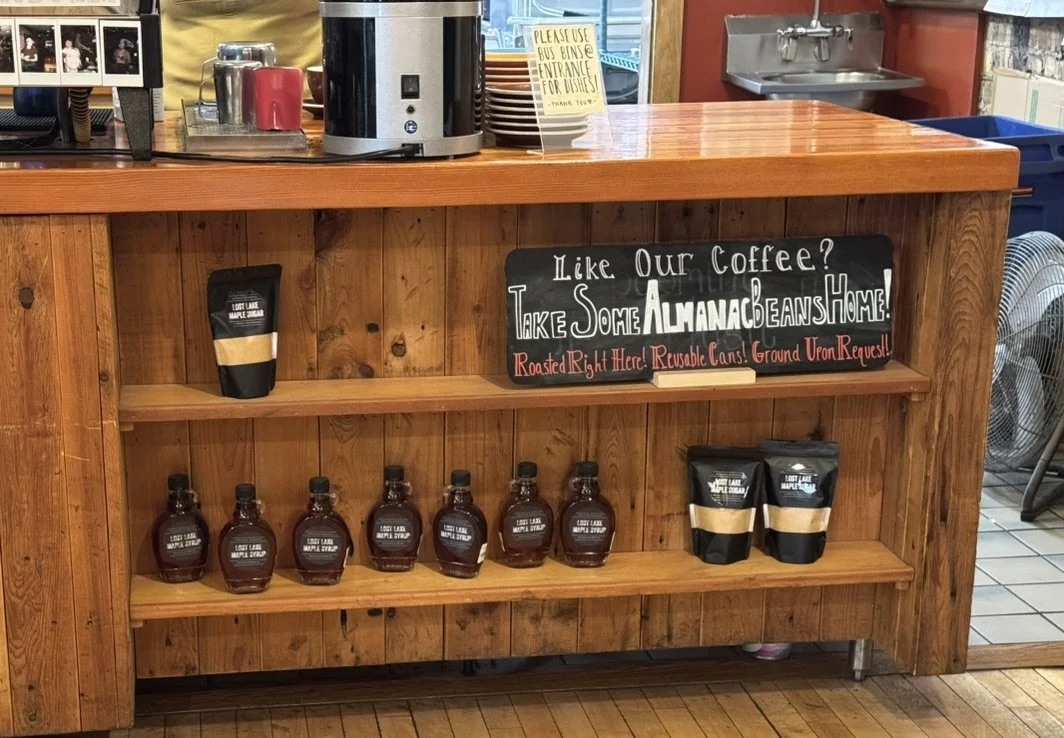The Cost of Coffee is on the Rise: What This Means for Duluth
This article was originally published in the October print edition of The Bark, distributed at the University of Minnesota Duluth campus.
Outdoor seating at Dovetail Cafe Photo by. Hanna McGuire
It is no secret that many Duluth residents and tourists love coffee, but with the multiplying difficulties in sourcing coffee, what price will Duluth pay?
In the past year coffee prices rose 20.1 percent according to the U.S Bureau of Labor Statistics. The coffee industry is facing serious impacts from the new tariffs and climate change.
“All coffee comes from developing countries. These are places where infrastructure is suboptimal,” said Justin Woods, Owner and Operator of Almanac Coffee, which supplies coffee to Dovetail Cafe and Marketplace in Lincoln Park.
Another important fact to understand is that the majority of the world’s coffee is commodity grade. There is a point scale behind coffee, where 0-80 is commercial grade coffee and any coffee above 80 is specialty coffee. Woods suggests that most of the local roasters in Duluth are working in the specialty coffee tier.
“What’s happening right now in the market is that it’s primarily these roasters, these people in the market who are actually being hit hardest. People like myself and others in town pay a premium on top of what the base commodity price is,” Woods said. These premiums are to ensure ethical growing practices and equitable pay for the farmers.
According to Woods, coffee is “being hit from a bunch of different angles right now.” Not only are there new tariffs on coffee, but climate change has had a large effect on the coffee bean industry. With frost and wildfires happening in Brazil, which is the largest coffee producer in the world, prices of coffee have risen simply because there is less of it.
Coffee beans being grown in the United States is not a viable option, as the U.S. doesn’t have the correct climate for growing them. “There is some [coffee] being grown in California, but the reality is, that is a drop in the bucket compared to what we consume as a country,” Woods said.
Almanac Coffee in Canal Park Downtown Duluth Photo by. Hanna McGuire
Harvesting coffee beans is very manual and in most countries the coffee crop is hand-picked, according to the National Coffee Association. Most of the world’s coffee is also grown and picked in third-world countries like Brazil, Vietnam, Columbia and Indonesia.
With all of this being said, most small local coffee businesses exist by very small margins. Almanac Coffee, along with many other small local coffee businesses have been eating these margins, but as the price increases, they eventually have to raise the price for the consumer.
Americans see coffee as an everyday good, instead of a luxury. “It’s this idea that it is supposed to be a cheap item, even though I think it really should be thought of as a luxury good,” Woods said.
With prices rising, Woods predicts that either people will stop buying or the quality of coffee will start to lower. “So people maybe aren’t changing their consumer habits, but they are starting to lower the grade of what they’re consuming,” Woods said.
Woods has had to raise his prices on his wholesale providers because they are the ones buying the largest volume.
“We’ve noticed that the price has gone up between 50 cents and a dollar,” says Julia Krabbenhoft, Co-President of UMD’s Coffee Club, a club that goes to coffee shops in the Duluth, Twin Ports and Proctor areas.
Krabbenhoft's go-to order of an iced oat milk latte with hazelnut used to cost her around $5.50 but recently she’s been finding herself paying closer to $8 for the same thing. Krabbenhoft also doesn’t foresee any change in coffee-consuming habits for herself or the coffee club in the near future, as they focus on going to locally owned shops that are affordable and sustainable.
Jake Conger, manager of 190 Degree Coffee in Duluth, has experienced a loss of customers due to the recent tariffs. “We serve a lot less of the regulars that we really loved,” Conger said. Conger explains that in the summer of 2024, around 70% of their business was tourists compared to the 90%-95% this past summer.
Conger says that 190 Degree Coffee is “already feeling the burn of it,” in regards to the tariffs and that “it has been very difficult” to adapt.
Almanac Coffee sold at Dovetail Cafe photo by. Hanna McGuire



